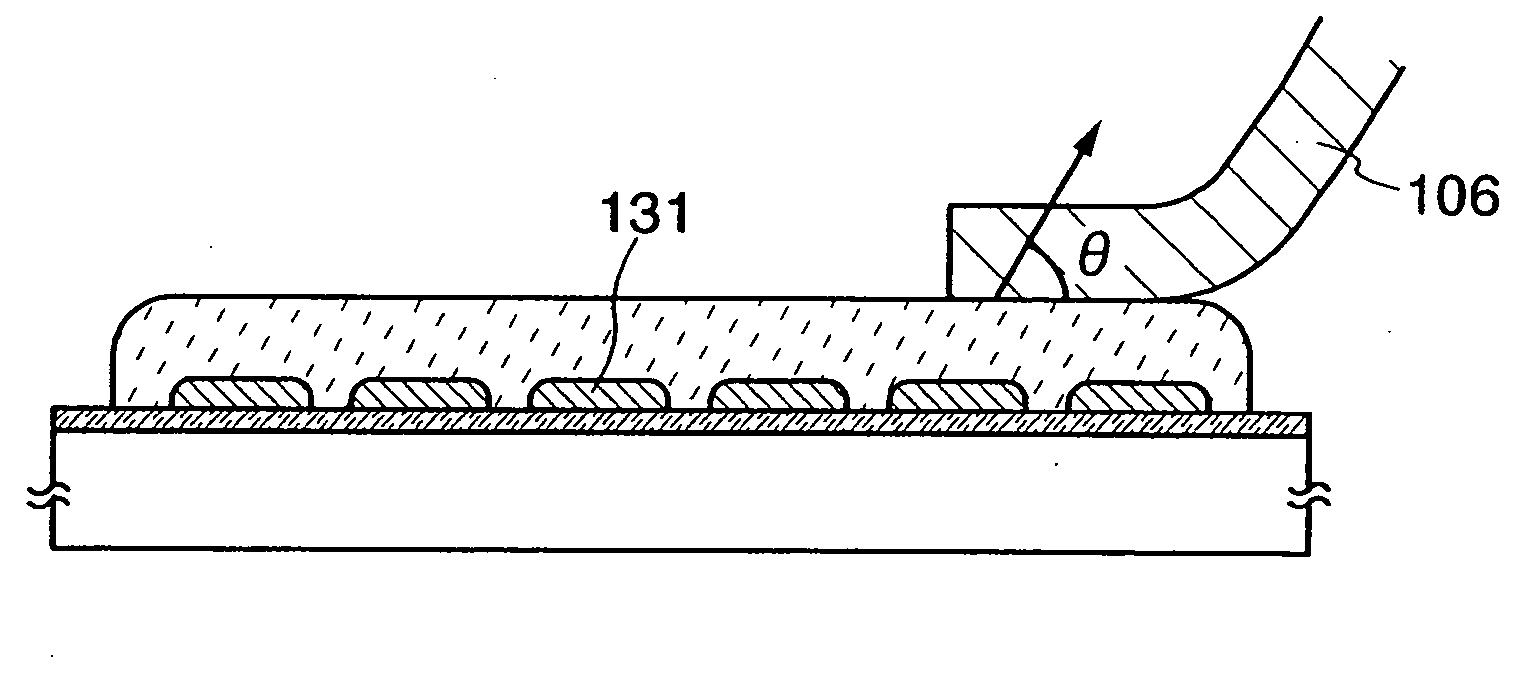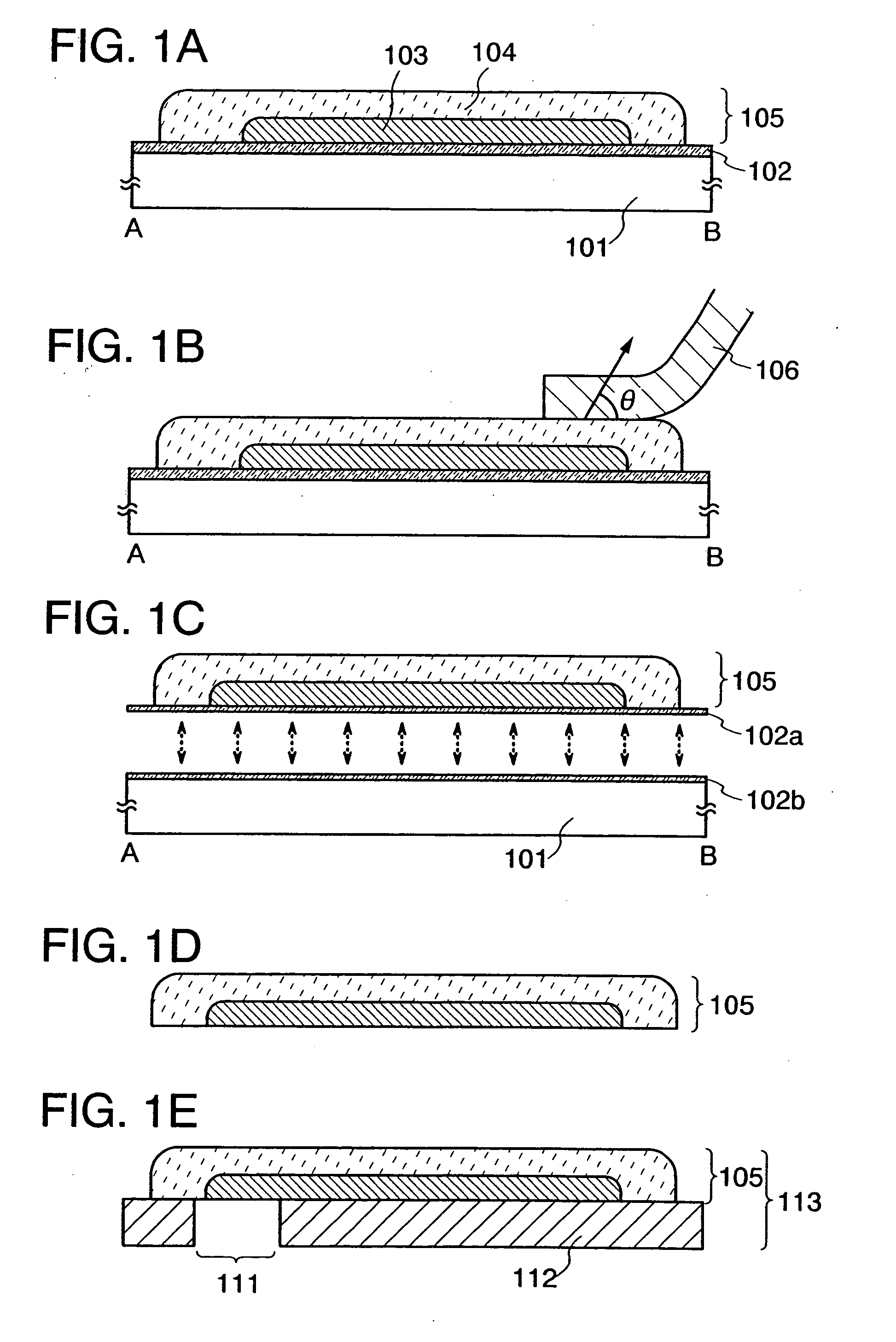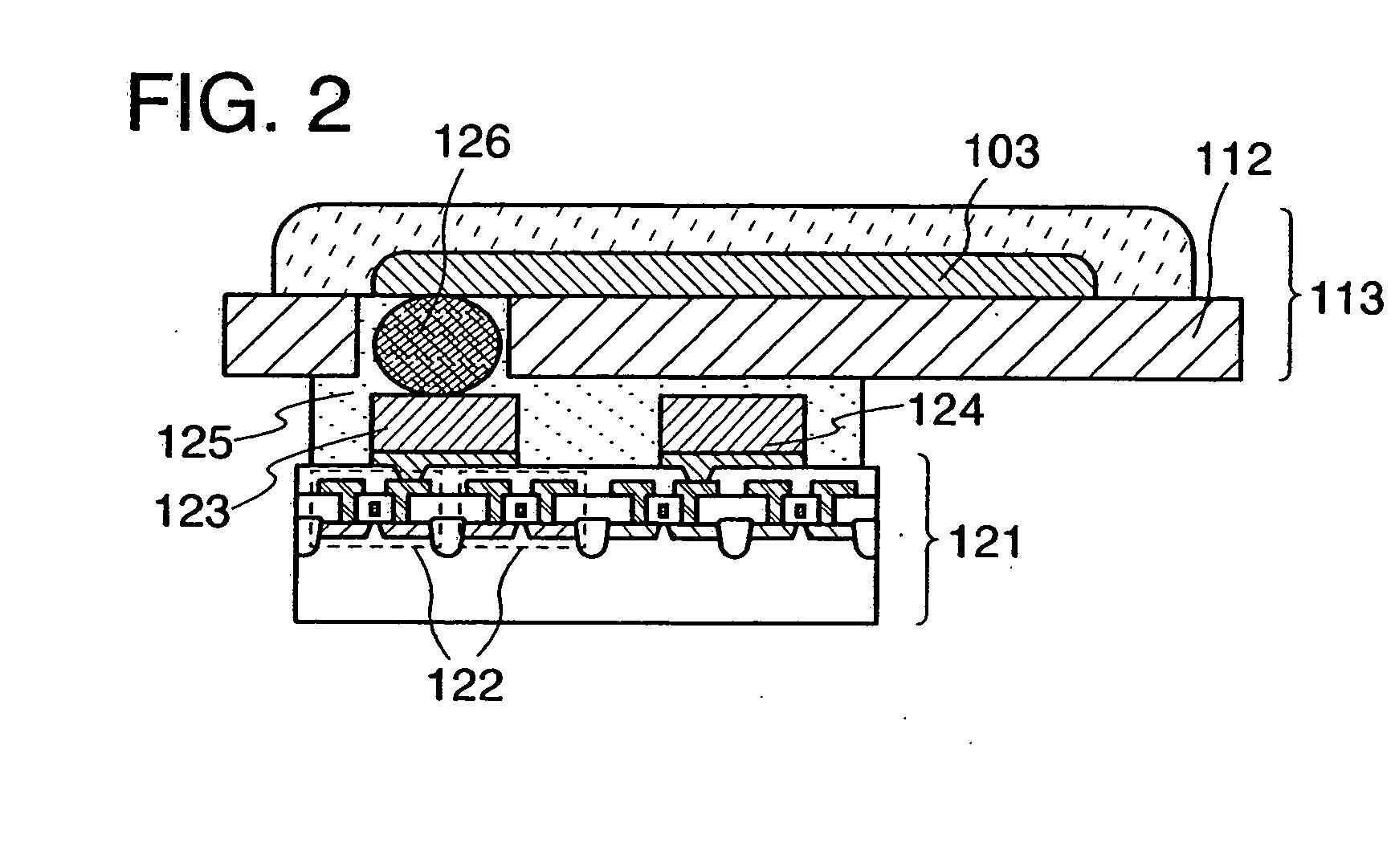Layer having functionality, method for forming flexible substrate having the same, and method for manufacturing semiconductor device
- Summary
- Abstract
- Description
- Claims
- Application Information
AI Technical Summary
Benefits of technology
Problems solved by technology
Method used
Image
Examples
embodiment mode 1
[0044] In this embodiment mode, one mode of a method for easily forming a layer having functionality will be explained with reference to FIGS. 1A to 1E, FIG. 2, FIG. 7, and FIGS. 15A and 15B. FIGS. 1A to 1E show cross-sectional views of a forming step of a layer having functionality. FIG. 2 shows a cross-sectional view of a semiconductor device capable of transmitting and receiving data wirelessly (also referred to as an RFID (Radio Frequency Identification) tag, an IC chip, an IC tag, an ID chip, an ID tag, an RF chip, an RF tag, a wireless chip, and a wireless tag). FIG. 7 shows a top view of FIG. 1A. A cross section A-B in FIG. 1A corresponds to a region A-B in FIG. 7. A layer having a conductive layer is used as a layer having functionality to explain this embodiment mode. In addition, the conductive layer here serves as an antenna. It is to be noted that this embodiment mode can be applied to a method for forming a layer having a colored layer as a layer having functionality in...
embodiment mode 2
[0088] In this embodiment mode, one mode of a method for easily forming a layer having functionality will be explained with reference to FIGS. 3A to 3E and FIG 4. FIGS. 3A to 3E each show a cross-sectional view of a step for forming a layer having functionality. FIG. 4 shows a cross-sectional view of a liquid crystal display device as a display device in a case where the display device is used as a semiconductor device. A layer having a conductive layer serving as a pixel electrode is used as a layer having functionality to explain this embodiment mode.
[0089] As shown in FIG. 3A, a layer 102 in which oxygen and silicon are combined and an inactive group is combined with the silicon is formed over a substrate 101, a conductive layer 131 is formed thereover, and an insulating layer 132 covering the conductive layer 131 is formed. A functional layer 133 can be formed by the conductive layer 131 and the insulating layer 132.
[0090] The substrate 101 and the layer 102 in which oxygen an...
embodiment mode 3
[0100] In this embodiment mode, one mode of a method for easily forming a layer having functionality will be explained with reference to FIGS. 5A to 5E and FIGS. 6A to 6E. FIGS. 5A to 5E each show a cross-sectional view of a forming step of a layer having functionality. As a layer having functionality, a layer that optically functions such as a colored layer, a color conversion filter, or a photogram color filter can be given in this embodiment mode. Here, a colored layer is used as a layer that optically functions to explain this embodiment mode.
[0101] As shown in FIG. 5A, a layer 102 in which oxygen and silicon are combined and an inactive group is combined with the silicon is formed over a substrate 101, a colored layer is formed thereover, and an insulating layer 158 covering a colored layer is formed. Here, light shielding layers 151 to 154, a red colored layer 155, a blue colored layer 156, and a green colored layer 157 are shown as the colored layer. A functional layer 159 c...
PUM
 Login to View More
Login to View More Abstract
Description
Claims
Application Information
 Login to View More
Login to View More - R&D
- Intellectual Property
- Life Sciences
- Materials
- Tech Scout
- Unparalleled Data Quality
- Higher Quality Content
- 60% Fewer Hallucinations
Browse by: Latest US Patents, China's latest patents, Technical Efficacy Thesaurus, Application Domain, Technology Topic, Popular Technical Reports.
© 2025 PatSnap. All rights reserved.Legal|Privacy policy|Modern Slavery Act Transparency Statement|Sitemap|About US| Contact US: help@patsnap.com



